支援団体紹介
SKYプロジェクトをご支援いただいている関連団体様をご紹介します。
SKY[Skills and Knowledge for Youth] ホーム 支援団体紹介
-

国連大学
United Nations University国連大学サステイナビリティ高等研究所(UNU-IAS)は、「持続可能な開発のための2030アジェンダ」の推進に資するプロジェクトを支援するため「地球規模課題解決に資する国際協力プログラム (Grant for Global Sustainability: GGS) 」を実施しており、その一環として本プロジェクトを資金的にサポートしています。
本SKYプロジェクトには、SDG4(包摂的開発の実現に向けた教育)、SDG8(包括的な経済成長と雇用)、SDG9(包括的な産業育成)等への学術的、政策的貢献が期待されています。
------
UNU-IAS implements the Grant for Global Sustainability (GGS), an initiative supporting research related to implementation of the 2030 Agenda for Sustainable Development. The SKY project is financially supported as part of its GGS project.
The SKY project is expected to make policy and academic contributions to the SDG4 (Inclusive and equitable quality education for all), SDG8 (Inclusive economic development and employment), and SDG9 (Education for achieving inclusive development).
*GGS is a funding project under the Ministry of Education, Culture, Sports, Science and Technology -
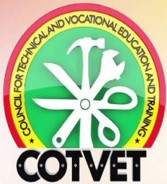
Council for Technical and Vocational Education and Training, Ghana
Council for Technical and Vocational Education and Training (COTVET) は、ガーナ国民議会の条例により設立された、ガーナの技術教育・職業訓練(TVET)システム構築の役割を担う国家機関です。
COTVETは、技術・技能人材の生産性と競争力の向上と、国民の所得創出能力の上昇を目指しています。特に、女性や低所得者層のスキル向上を目指した、質的向上型・産業焦点型・コンピテンシー型の訓練プログラムや補足事業を行っています。
-----
Council for Technical and Vocational Education and Training (COTVET) is a national body set up by an Act of Parliament of the Republic of Ghana. COTVET is establishing Ghana's Technical Vocational Education and Training (TVET) system.
COTVET is aiming to improve the productivity and competitiveness of the skilled workforce and raise the income generating capacities of people, especially women and low income groups through provision of quality-oriented, industry-focused and competency-based training programmes and complementary services. -
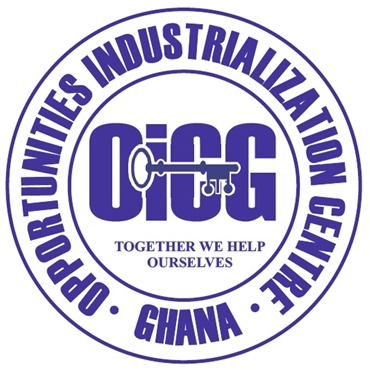
Opportunities Industrialization Centre Ghana
Opportunities Industrialization Centre Ghana (OICG)は、ガーナのアクラ、クマシ、セコンディ・タコラディに拠点を置き、技術教育・職業訓練を提供しています。
OICGが提供しているコースでは、質の高い教育を通して、労働市場で求められているより高いレベルの知識とスキル、また、自営業として自立できる知識とスキルの習得による訓練生の能力開発を目指しています。
------
Opportunities Industrialization Centre Ghana (OICG) is a Technical Vocational Education and Training (TVET) provider with training centres in Accra, Kumasi and Sekondi/Takoradi.
The courses provided by OICG intend to upgrade Trainees’ knowledge to enable them to take advantage of further levels of study to qualify for higher appointments in the Labour Market or go into Self Employment. -
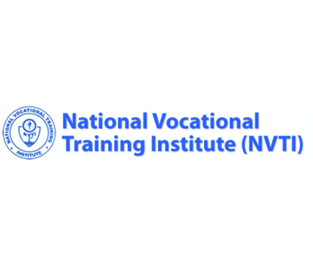
National Vocational Training Institute, Ghana
National Vocational Training Instituteは1970年にガーナに設立されました。
コンピテンシー基盤型従弟制度、マスター職人技能習得、試験とキャリア開発を通して、需要主導型で雇用につながる技術の習得と、収入につながる能力強化を目指しています。
------
National Vocational Training Institute was established in Ghana in 1970.
The purpose is to provide demand-driven employable skills and enhance the income generating capacities through Competency-Based Apprenticeship, Master Craftsmanship, Testing and Career Development. -
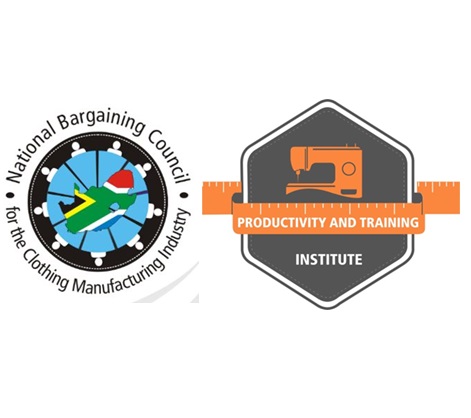
The Productivity and Training Institute of the Clothing Manufacturing Industry, South Africa
The Productivity and Training Institute of the Clothing Manufacturing Industry(PTI)は2016年に以下のミッションとビジョンを掲げ、衣類製造業の生産性の向上と持続可能な成長を目指して南アフリカに設立されました。
ミッション:顧客とグローバルなニーズに沿えるよう、適切なトレーニングと世界レベルの製造工程の実施を通して、衣類製造業の生産性レベルの効率的向上を支えること
ビジョン:質の高い製品で人々の生活を豊かにし、ローカル産業を支え、そしてグローバルな競争力を備えた衣類製造業を作り上げる革新的で機敏な製造工程を発展させること
PTIはSKYプロジェクトに参加することで、他の国と比較可能な基準で産業能力ギャップの査定が可能な構造化されたモデルを得ることを期待しています。プロジェクトへの企業の参加を促し、効果的な産業技術の分析にこのプロジェクトを活かすことを目指しています。
-----
The PTI was launched in 2016 in South Africa, the decision to launch the institute by the NBC was reached after observing the challenges in skills and productivity bedevilling the industry and threatening the continued existence of the industry. The Role of the Productivity and Training Institute (PTI) of the Clothing Manufacturing Industry is to identify challenges, coordinate and support implementation of interventions to:
-improve productivity and sustainability
-position industry for sustainable growth
Mission is to efficiently engage clothing manufacturing industry so as to continuously improve productivity levels through implementation of relevant trainings and world class manufacturing processes to meet evolving customer requirements and the growing global demand for ethically and responsibly manufactured clothing.
Vision is to develop innovative and agile manufacturing processes that create a globally competitive clothing manufacturing industry which satisfy people’s lives and continue to capacitate local industry as a preferred and leading supplier of quality clothing.
We are excited to participate as an industry in the SKY project because this project gives us an opportunity to use a structured model to assess competence gaps and at the same time allowing an opportunity to benchmark with the other countries participating in the programme. The role of the PTI in the SKY project is to facilitate all the requirements and motivating for industry participation so as to as to view this project as a tool that can be adapted for sector skills analysis required to plan effectively. -

エチオピア連邦民主共和国・教育省
Ministry of Education, Federal Democratic Republic of Ethiopiaエチオピア連邦民主共和国(以下、「エチオピア」)の2003年から2015年の平均年間経済成長率は10.8%である。この経済成長を維持・強化するためには、質の高い人材の育成が急務であることから、エチオピア教育省は、熟練した労働人口の開拓に向け大きく注力している。しかしながら、教育を受けている労働者でありながら、特に職業訓練所(TVET)の卒業生は、労働界に必要とされる技能を十分に身につけていないのが現状である。名古屋大学のSKYプロジェクトチームは、綿密な科学的調査に基づき、既存のTVETカリキュラムに満足することなく、産業界に必要とされる技能と領域を的確に示している。現行のTVETカリキュラムは、国家職業訓練資格枠組みに基づく労働基準に沿って、更なる改善を要している。SKYチームの立証性ある提言は、産業と教育の連携を向上させ、教育と訓練を現実世界へ有機的に繋げており、国の経済的な繁栄に大きく寄与している。教育省は、TVET機構と連携し、SKYプロジェクトとの共同研究を通したパートナーシップの強化を望んでいる。
-----
The economic growth rate of Ethiopia averaged 10.8% per year between 2003/04 and 2014/15. Recognizing the urgent need to develop quality human resources to maintain and enhance economic growth, the Ministry of Education has invested greatly in developing a skilled workforce. However, we still face the challenge that the educated workforce, particularly those from TVET (Technical and Vocational Education and Training), has not fully acquired the necessary competency demanded in the world of work.
The findings of the SKY project team from Nagoya University, which are based on rigorous scientific investigation, indicate the exact domains and types of skills which are required by the industries but not satisfied by the existing TVET curriculum under implementation. This indicates further improvement is needed in the TVET strategy based on the occupational standards set by industry based on the country's National TVET Qualification framework. The evidence-based proposals by the SKY team serve greatly to improve the industry-education linkage, make the education and training organically linked to the real world of work, and for the greater economic success of the country. My ministry looks forward to strengthening the partnership through collaborative research with our TVET institute. -

愛知文化服装専門学校
Aichi Bunka Fashion College愛知文化服装専門学校は、1936年に創立されたアパレル業界が求める人材を育成するファッションの専門学校です。愛知県知事より、ファッションスペシャリストを育成する職業教育に対して専修学校特色教育認定校に指定され、文部科学大臣より、「未来のファッション産業界における人材育成のための教育システム開発」の研究に対して中部地区で最初の特定研究推進事業協力校に指定されています。
本プロジェクトへは、技能評価モジュールへの助言および試行を支援させて頂いております。技能評価の結果は、本校学生の学習到達度の把握や進路指導にも役立っております。
-----
Aichi Bunka Fashion College was established in 1936 to develop a skilled workforce for the apparel industry. The College is certified as a special vocational institute by the Governor of Aichi prefecture as well as appointed by the Ministry of Education, Culture, Sports, Science and Technology-Japan as a special college that promotes development of an education system for the fashion workforce.
We support the SKY project in the development of its skills assessment module. The implementation and review of the skills assessment module can show the comprehension level of our students and be a useful indicator when we give career advice. -
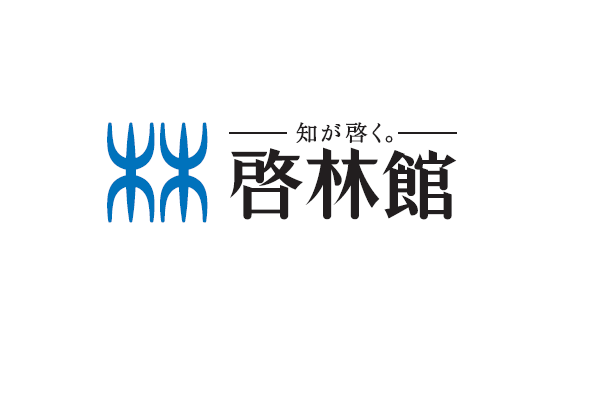
新興出版社啓林館
Shinko Shuppnansha Keirinkan新興出版社啓林館は1946年に創業し、最初の出版物として小学校用自習書「国語の学習」「算数の学習」の発行し、現在は教科書・教材の啓林館、学習参考書の新興出版社、児童図書の文研出版の3つのブランドで子どもたちの未来を創造する教材を提供しています。現在、国際目標である持続可能な開発目標(SDGs)にむけて教育の目標を中心に様々な社会貢献を推進しています。
本プロジェクトへは、モジュールの問題作成にあたり教科書や教材の設問を使用させて頂いております。モジュール試行によって得られた正答結果を途上国の産業人材から得た情報として共有し、国際的な教育開発に向けて本プロジェクトの結果を役立たせていきます。
-

独立行政法人国際協力機構 (JICA)
Japan International Cooperation Agency (JICA)草の根技術協力は、日本のNGO/CSO、地方自治体、大学、民間企業等の団体が、これまで蓄積した知見や経験に基づいた国際協力活動を、JICAが提案団体に業務委託してJICAと団体の協力関係のもとに実施する共同事業です。草の根技術協力事業は、開発途上国の地域住民の経済・社会の開発または復興に寄与することを目的としています。
弊研究室が提案した「中小企業労働者の能力強化に向けた技能評価に基づく訓練導入プロジェクト」は、2019年度の草の根技術協力事業として採択されました。
-

名古屋大学アジア共創教育研究機構
Applied Social System Institute and Graduate School of International Development, Nagoya University名古屋大学は、日本の主要な国立研究大学として、国際ネットワークや学術的知見を蓄積してきました。それらに基づき、「アジアのハブ大学」としてさらに飛躍することを目指し、2017年にアジア共創教育研究機構(ASSIA)を設立しました。ASSIAは、国際社会における課題解決への貢献及び学術的研究の展開を図るため,学問分野の枠にとらわれず、分野横断・融合を促進し、新たな学問領域の形成に資することを目指しています。
本SKYプロジェクトは、ASSIAの基幹研究の一つであり、教育開発学、教育測定学、計量経済学、地域研究の知見を持ち寄り、開発途上国政府や投資企業の人材育成政策や戦略の向上に貢献することが期待されています。
-----
Nagoya University has been playing a major role as a Japanese national research university, accumulating academic knowledge and building international networks. Based on such history and experiences, Nagoya University has established the Applied Social System Institute (ASSIA) aiming to advance our effort as an Asian Hub University. ASSIA aims to contribute to the formation of new academic fields by connecting and fusing disciplines regardless of confined academic fields in order to face global issues and contribute to the development of academic research. The SKY project is one of the ASSIA’s core research projects. The intellectual capacities of the fields of Education Development, Education Measurement, Econometrics Economics, and Regional Studies are brought together to contribute to the policy for skills development of governments of developing countries and to strategies for corporate investment.

